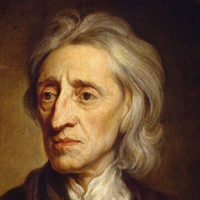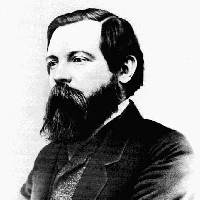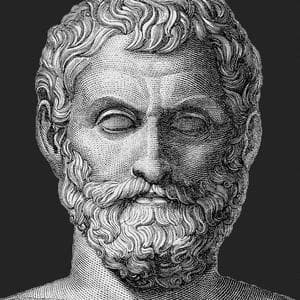René Descartes MBTI 성격 유형
인격
"René Descartes은 어떤 성격 유형입니까? René Descartes은 mbti의 INTP 성격 유형입니다. enneagram의 5w6 - so/sp - 613, big 5의 RCOAI, socionics의 LII입니다."
[1/3] René Descartes is a Social 6 When I see Rene, I remember Kant, when I see Kant, I remember Rene. They are INTP LII IT(N) SO6 LVFE prototypes and blueprints. This is why I believe Rene is SO6 rather than SO5, Ego-Cowardice > Ego-Stinginess. Indecision, doubt, and seeking reassurance > Replacing direct experience with concepts. “Je pense, donc je suis.” “I think, therefore I am.” “So blind is the curiosity by which mortals are possessed, that they often conduct their minds along unexplored routes, having no reason to hope for success, but merely being willing to risk the experiment of finding whether the truth they seek lies there.” “Starting with "I think," Descartes fixed his attention only on the "think," completely neglecting the "I." Now, this I is essential. For Man, and consequently, the Philosopher, is not only Consciousness but also—and above all—Self-Consciousness. Man is not only a being that thinks—i.e., reveals Being by Logos, by Speech formed of words that have a meaning. He reveals in addition—also by Speech—the being that reveals Being, the being that he is, the revealing being that he opposes to the revealed being by giving it the name Ich or Selbst, I or Self.” — Alexandre Kojève SO6's fear often manifests in a rigid commitment to duty and loyalty. Descartes's intellectual journey mirrors these traits, as he sought certainty in a world of doubt and formulated a methodical approach to knowledge. His experiences of personal loss, such as his mother's death and his daughter's early demise, likely intensified his quest for stability and truth. The social aspect of his personality is pronounced in his relationships with influential figures and his adaptation to different environments, from military service to academic circles. Despite frequent moves and challenges, Descartes remained dedicated to his philosophical and scientific pursuits, personifying the SO6's drive for productivity, precision, and adherence to a personal moral code. René Descartes was born in La Haye en Touraine, Province of Touraine, France, on March 31, 1596. His early life was marked by tragedy when his mother, Jeanne Brochard, died shortly after giving birth to a stillborn child in 1597. This loss led to Descartes being raised by his grandmother and great-uncle, while his father, Joachim, a member of the Parlement of Rennes, was often away. Despite his Catholic upbringing, Descartes grew up in a region dominated by Protestant Huguenots, which may have influenced his later philosophical explorations. His education began late due to his fragile health, but in 1607, he entered the Jesuit Collège Royal Henry-Le-Grand at La Flèche. There, he was exposed to mathematics, physics, and Galileo's work, which ignited his lifelong interest in these subjects. He graduated in 1614 and then studied law at the University of Poitiers, as per his father's wishes, earning his degree in 1616. In 1618, driven by his ambition to become a military officer, Descartes joined the Protestant Dutch States Army in Breda under Maurice of Nassau. His time in the army allowed him to formally study military engineering and deepen his knowledge of mathematics. He met Isaac Beeckman, who influenced his early work in science and philosophy. Descartes's service under the Catholic Duke Maximilian of Bavaria saw him present at the Battle of the White Mountain in 1620. A pivotal moment came on the night of November 10-11, 1619, when Descartes experienced a series of dreams that he interpreted as divine revelations. These dreams inspired his formulation of analytic geometry and the application of mathematical methods to philosophy, leading to his famous declaration, "I think, therefore I am." After leaving the army in 1620, Descartes traveled extensively before settling in Paris, where he composed his first essay on method, "Regulae ad Directionem Ingenii." By 1623, he had sold his property to secure a comfortable income from bonds. During this period, he observed the siege of La Rochelle and met notable mathematician Girard Desargues. In 1628, he moved to the Dutch Republic, where he spent over 20 years and wrote most of his major works. His time in the Netherlands was marked by significant personal and intellectual developments, including the birth and death of his daughter, Francine. Descartes continued to publish influential works such as "Discourse on the Method" and "Meditations on First Philosophy." Despite facing opposition, including condemnation by the University of Utrecht, he persisted in his work, contributing to the revolution in mathematics and philosophy. “The entire method consists in the order and arrangement of the things to which the mind's eye must turn so that we can discover some truth.”
전기
René Descartes (1596 – 1650) was a French philosopher, mathematician, and scientist. Dubbed the father of modern western philosophy, much of subsequent Western philosophy is a response to his writings, which are studied closely to this day. A native of the Kingdom of France, he spent about 20 years (1629–49) of his life in the Dutch Republic after serving for a while in the Dutch States Army of Maurice of Nassau, Prince of Orange and the Stadtholder of the United Provinces.
인격 correlate
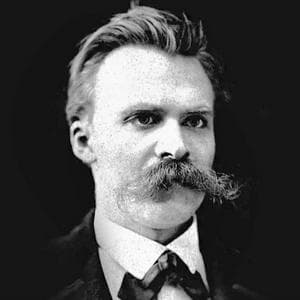
Friedrich Nietzsche
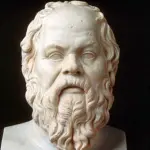
Socrates

Arthur Schopenhauer
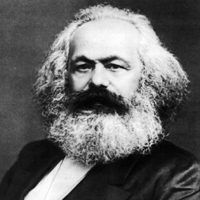
Karl Marx

Albert Camus
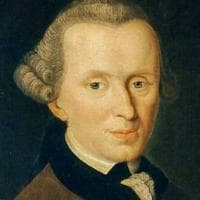
Immanuel Kant
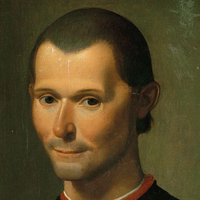
Niccolò Machiavelli
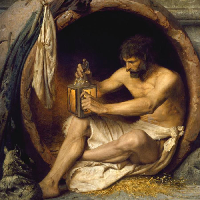
Diogenes

